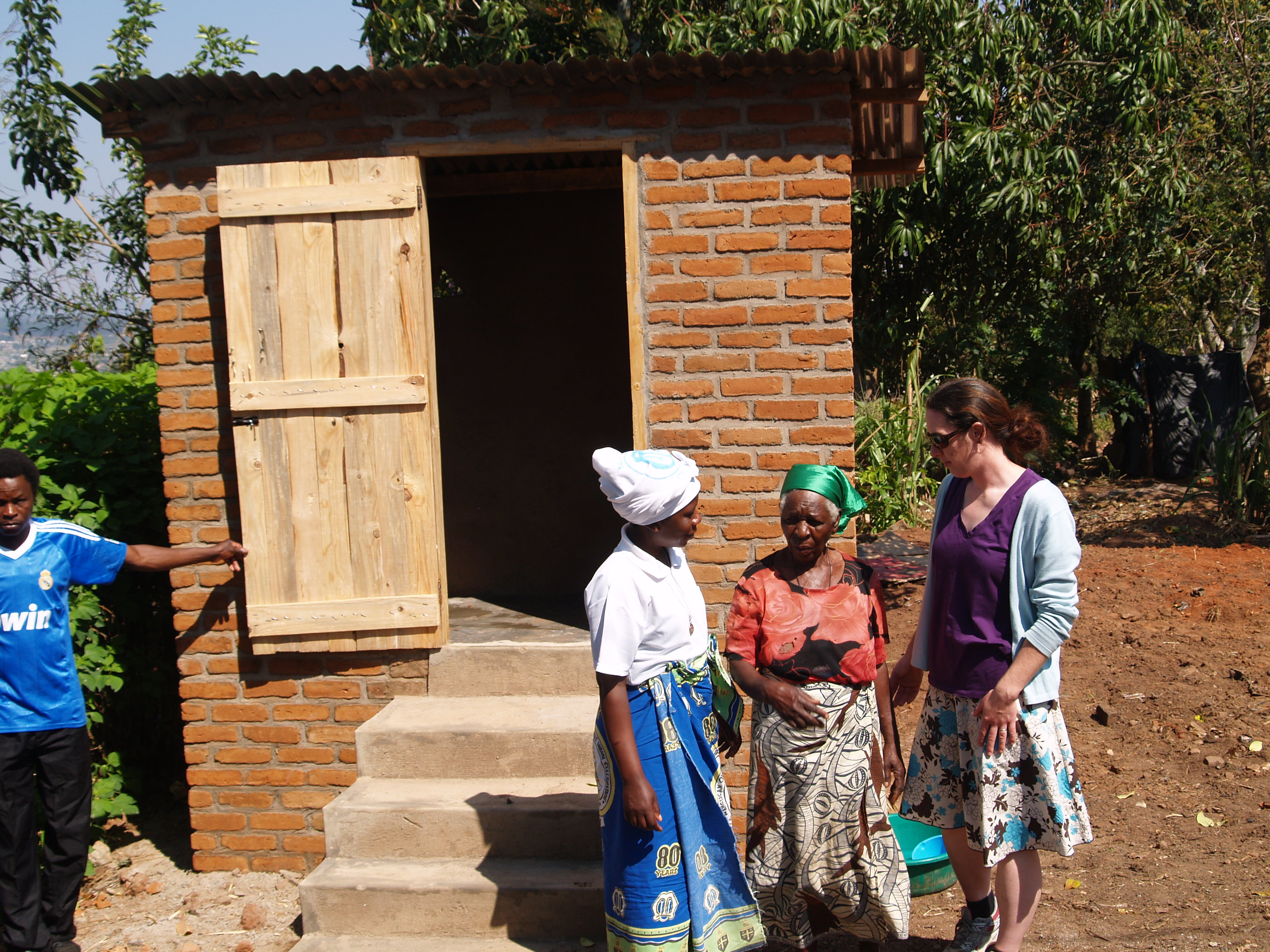About This Project
Ninety percent of Malawi does not have access to improved sanitation. 90% of the people also work in agriculture. Small scale farmers comprise more than half of Malawi's population and have limited access to both sanitation and fertilizer. This project aims to assess the ability of composting toilets to provide farmers in northern Malawi with both toilets and a sustainable source of essential soil nutrients.
Ask the Scientists
Join The DiscussionWhat is the context of this research?
Ecological sanitation is an approach that aims to reuse human manure in agriculture, thus recycling nutrients through the environment. Composting toilets are one way to implement ecological sanitation. These toilets have 2 chambers: the first chamber is in-use and one that has been filled with manure, sealed, and left to mature for several months. During this maturation process the compost dries out and a combination of temperature and time should result in pathogen die-off.
90% of the Malawian labor force works in agriculture. Many of these are small scale farmers who do not have reliable access to fertilizer to their enrich nutrient-poor soils.
What is the significance of this project?
Mzuzu University is working to expand its services to include soil analyses that will help the health and nutrition for the community. In addition to soil-transmitted intestinal worms, recent literature suggests soil and household dust as a source of exposure for diarrheal diseases. Furthermore, crop fields and gardens can be monitored for the presence of essential nutrients. Composting toilets are relatively new to the area, but their impact and the potential for ecological sanitation has yet to be evaluated.
This project lays the groundwork for reducing transmission of diarrheal diseases and intestinal worms, while generating a sustainable source of fertilizer. The end goal is a healthier community able to enrich the soil and improve their crop yields for generations to come.
What are the goals of the project?
1. To determine the combination of temperature, pH, and moisture suitable for pathogen die-off in composting toilets
2.To assess if toilet compost enriches farmland soil by measuring the quantity of nitrogen, phosphorus, and potassium in the compost
3. To build the capacity of the Mzuzu University Centre of Excellence in Water and Sanitation by working closely with a university student to collect and analyze data as well as write detailed procedures based on our methods
Budget
This budget supplements transportation supported by Emory University Global Field Experience funds. Other expenses I must cover out-of-pocket or forego the analysis. The Centre of Excellence in Water and Sanitation operates through funding from donors and is unable to finance method development. They provide personnel support through educational exchange.
A Mzuzu University student intern will help translate necessary documents and act as cultural liaison while getting hands on experience with field sampling and laboratory procedures. I will also have a faculty advisor in Mzuzu.
Laboratory equipment includes: soil nutrient testing kit; pH meter to monitoring effects of adding ash to the toilet; scale for weighing consistent amounts of sample for each analysis; data loggers for monitoring the temperature profile of compost in the sealed toilet chamber; personal protective equipment.
All backers will receive updates via Lab Notes where they can interact with the field team and view photos.
Meet the Team
Team Bio
I am a Master of Public Health student in Global Environmental Health pursuing a Water, Sanitation, and Hygiene (WASH) Certificate. I have BA degrees in Chemistry and Geology from Oberlin College. Following that I analyzed dust samples for an industrial hygiene company dedicated to air quality. I have always loved science laboratory class and I am considering careers in laboratory or project management and research, for which is experience is an awesome opportunity.
Now, when I'm not in the library or the lab, I like to experiment in the kitchen (cook), and play in the dirt (garden). I am also a first time dog-owner and amateur geologist.
Additional Information
This link is Mzuzu University, Mzuzu, Malawi, where I will be this summer.
More information about the Mzuzu University Centre of Excellence in Water and Sanitation can be found on the SMART Centre webpage.
Once the full project team is assembled, if my colleagues are also in favor of Open Access, I will display results of the project.
Banner photo credit: khym54's Flickr account image is of "Lucen and his wife in their garden. Lucen is a Zone Leader; with Somebody Cares Malawi. He is a leader in his community and he is a pastor."
Project Backers
- 13Backers
- 100%Funded
- $2,999Total Donations
- $123.00Average Donation

